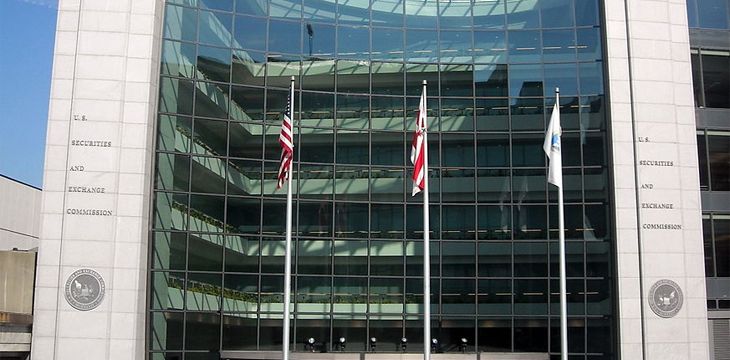|
Getting your Trinity Audio player ready...
|
Gary Gensler, the former CFTC Chairman known for his tough approach to regulation, is rumored to be the Biden administration’s choice to head the U.S. Securities and Exchange Commission (SEC). If the reports are confirmed, Gensler’s appointment could signal stricter rules for digital asset exchanges and projects to curb some of the industry’s past excesses.
Joe Biden’s transition team chose Gensler as its financial policy leader in November 2020, but the team has as yet neither confirmed nor denied reports he will soon head the SEC.
Gensler is a former Goldman Sachs employee and is currently a professor at the MIT Sloan School of Management. His policy experience includes serving as Chairman of the Commodity Futures Trading Commission (CFTC) during the Obama administration from 2009 to 2014, plus Undersecretary of the Treasury for Domestic Finance and Assistant Secretary of the Treasury for Financial Markets under the Clinton administration.
Former legal colleagues predicted that Gensler would be likely to take a tougher approach to regulation and enforcement actions against large institutions than President Trump’s previous SEC head, Jay Clayton.
Gensler has also been noted for setting new directions at the CFTC, previously a more hands-off institution, in the wake of the 2008 financial crisis. During his tenure he expanded the CFTC’s oversight to include the US$400 trillion swaps market, and advocated for more transparency and lower risks to investors.
He also drove a crackdown on banks found to be manipulating bank interest rates after listening to recordings of Barclays employees plotting to submit false reports.
Gensler’s thoughts on Bitcoin and blockchain
Noted as an “aggressive regulator”, Gensler has made himself familiar with the blockchain and digital asset industry. He wrote an op-ed piece for CoinDesk in December 2019 in which he said “some ground-truths are evident”, including that Satoshi Nakamoto had “solved the payments riddle” while avoiding double-spending, but that “Bitcoin and other cryptocurrencies have evolved into a speculative asset class”.
His op-ed piece also noted the ICO boom and bust of 2017-18, that digital asset exchanges were “not yet appropriately brought within public policy frameworks,” and that “crypto markets have been rife with scams, fraud, hacks and manipulation.” However he also acknowledged the technology has potential to be a real catalyst for change, even if this “may not fulfill the heightened expectations of maximalists”.
“The potential to lower verification and networking costs is worth pursuing, particularly to lower economic rents and data privacy costs, and promote economic inclusion,” he added.
His thoughts and past reputation suggest an approach that would remain open-minded towards digital asset and blockchain technology growth, while remaining wary of its past pitfalls.
Gensler in the past has faced opposition from both sides of the regulatory scene—from Democrat progressives who initially objected to his Goldman Sachs experience, to financial institutions themselves. Wall Street had supported previous SEC head Clayton’s deregulatory policies, which Gensler would likely move to reverse.
As the blockchain and digital asset industry finds itself coming increasingly under the purview of securities and derivatives regulation, a Gensler-led SEC could see further (and stricter) new laws governing its actions. His past statements on the benefits and risks associated with the industry also serve as a guide to how he’d like to see things done.
More than ever, regulators and investors alike are calling for more intervention in the former “wild west” of digital assets. This notion also becomes more realistic as the industry grows and seeks higher fiat injections from larger institutional investors. Bitcoin BSV, as the only blockchain with the ability to scale to the proportions necessary to handle large enterprise applications, is also known for its active willingness to cooperate with regulators work within legal frameworks to achieve its goals.
See also: U.S. Rep. Darren Soto’s keynote talk at CoinGeek Live, Balancing Innovation & Regulation for Growth of Blockchain Technology

 02-24-2026
02-24-2026 




